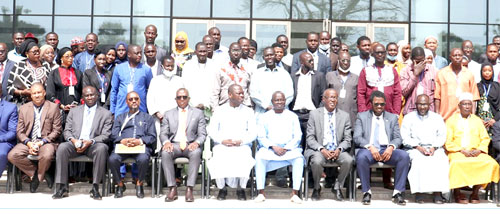Tapping into Islamic finance will attract foreign direct investment into the Gambia and contribute significantly to its economic development. It is one of the key instruments used in asset generation, focusing purely on the real economy. The Governor of the Central Bank of Gambia, Buah Saidy, made this point at the recent 8th Africa Islamic Finance Summit held in Banjul. According to him, it is a suitable option for both Muslims and non-Muslims, and the asset-based nature is non-speculative of the Islamic bank industry and finance.
He said Islamic finance has evolved in the Gambia and is still a work-in-progress. In January 2022, the Gambia launched its national financial inclusion strategy to expand the financing access frontier due to the lack of enabling financiers for its economic growth and development.
According to him, limited access to finance is a significant obstacle to growth and a prominent indicator of the ease of doing business in developing countries.
He said, “Globally 1.7bn individuals and businesses do not have access to finance. Islamic finance is expected to bridge the financial gap for women, the youth, and small and medium enterprises with Islamic finance-compliant products and services.” Mr. Saidy explained that the principles of Islamic finance are based on the prohibition of riba, also known as interest, gambling, and speculative trade. At the same time, it encourages partnership and risk-sharing and contracts between financial institutions and their customers.
Due to its underlying principles, it has attracted attention throughout the globe and is considered a stable and ethical alternative to the conventional financial system irrespective of religion, he said. Islamic finance requires that financial products be structured to comply with shariah law and executed through the wholesale purchase contract based on an underlying asset.
The underlying principle of Islamic finance is the distribution of wealth by regulating the activities of the market.
He highlighted the basic features of Islamic finance:
Principles of justice is an essential requirement for all kind of Islamic financing
The financing of Islamic finance product is restricted to valuable goods and services and refrain from financing harmful activities
The ethical and moral consideration of Islamic products and the essential principle is that money is not an earning asset in Islam
“An Islamic microfinance aims to achieve social goals of Islam through providing financial services and technical assistance to low income, vulnerable and marginalized micro-small businesses.”
He informed stakeholders that the Gambian government is partnering with the IsDB to develop the country’s necessary infrastructure for Islamic banking. In 1997, the first Islamic institution, the Arab Gambia Islamic bank, AGIB, was established through equity participation, including the Islamic development bank.
Within a decade, the bank has grown across the country with products such as Murabaha, Mudarabah, Musharakah, and Wakala. He stated that the Central Bank of the Gambia developed an investible Islamic finance instrument called the Sukuk As-Salam in 2017, which gained popularity and attracted investments from Islamic and conventional banks.
In his remarks, the Chief Executive Officer of the Islamic Corporation for the Development of the Private Sector, Mr. Ayman Sejiny, said Islamic finance has a lot to offer economies as alternative finance promoting sustainable development. He said it also creates an enabling environment for economic and social development.
He noted that as Africa rapidly transforms, the continent processes immense potential to become the world economy’s new powerhouse. ICD is present in over 20 African countries, mandated to provide shariah complaint, capital and deliver knowledge and partnership to serve all private sector players in member countries.—Proshare










